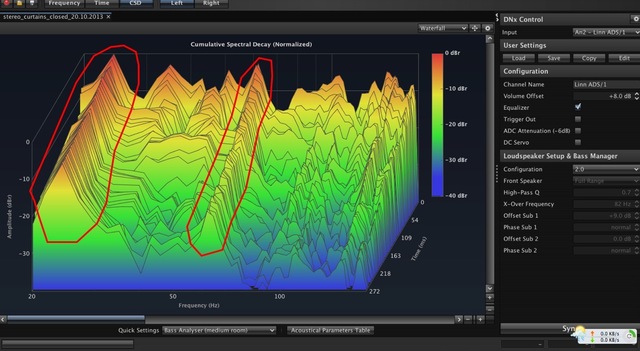- Thread Author
- #1
I'm hearing this complaint more and more from audiophiles. They have too much bass, or more specifically, too much mid bass. Bass spikes in the 60, 70 or 80hz region can be a real PITA. Being the quirky bunch we are, most are opposed to the letters "DSP". It sends shivers down the spine of the harden audiophile, myself included.
In my own situation, I had a major spike at 73hz in my main listening room with my Alexia's. I also had a similar problem with other speakers in that room. The placement of 10 bass traps did little, if anything to fix that 73hz problem.
I've been living with the DSPeaker 2.0 Dual Core for the past couple of months and this little magic black box works! It comes with everything you need out of the box. It retails for about $1200 and nothing in that price range can touch it.
Downside? A slight increase in "hiss"/background noise.
I believe Jeff from AV Solutions has picked up the line a couple of weeks ago. Maybe he can chime in here.
I also plan on trying the DEQX soon. Stay tuned. The point is, there is a solution!

Mike
In my own situation, I had a major spike at 73hz in my main listening room with my Alexia's. I also had a similar problem with other speakers in that room. The placement of 10 bass traps did little, if anything to fix that 73hz problem.
I've been living with the DSPeaker 2.0 Dual Core for the past couple of months and this little magic black box works! It comes with everything you need out of the box. It retails for about $1200 and nothing in that price range can touch it.
Downside? A slight increase in "hiss"/background noise.
I believe Jeff from AV Solutions has picked up the line a couple of weeks ago. Maybe he can chime in here.
I also plan on trying the DEQX soon. Stay tuned. The point is, there is a solution!

Mike

